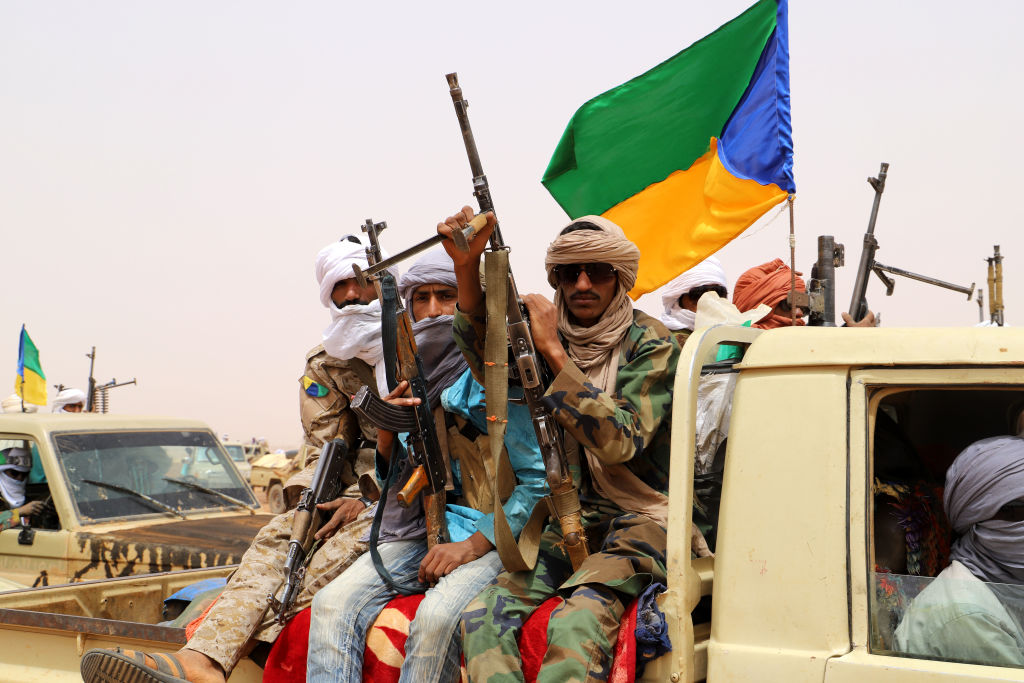Escalating Tensions Risk Return to Civil War in Mali
ADF STAFF
Tension is escalating in northern Mali, where a fragile peace plan is teetering on the verge of collapse.
The Tuareg rebellion ended in 2015 with the Algiers peace accord, but because it has never been fully implemented, the conflict between former rebels and the government has festered.
With Mali’s military junta taking a more adversarial approach in recent months, some fear that violent confrontations are on the horizon.
Amadou Albert Maïga, a member of the National Transition Council that acts as a legislative body for the unelected government, recently said the Malian army would act soon.
“War is inevitable in Kidal,” he said during a live broadcast on Facebook in February.
Maïga indicated that the army was planning operations to restore government authority over Kidal, a strategic city in the north that has been controlled by a coalition of former rebels since 2013.
One member of the junta, Malian Minister of National Reconciliation Col. Ismaël Wagué, has seen his relationship with that coalition — the Coordination of Azawad Movements (CMA) — deteriorate with his every accusation of violations of the peace agreement.
The Algiers accord ended years of hostilities with largely ethnic Tuareg armed groups that fought for independence in northern Mali beginning in 2012, a conflict that was stoked by militant Islamist extremists who also are based in the deserts of the North.
Today, the Malian junta led by transitional president Col. Assimi Goïta has shown an unwillingness to negotiate. Weighing in with its continental reputation for mediation, neighboring Algeria recently proposed a meeting in neutral territories. Goïta rejected the overture.
In response, the former Tuareg rebels withdrew from the commission in charge of finalizing Mali’s new constitution.
“Today, the dialogue is totally broken, and each is waiting for the other to take action that will mark the final break, so as not to be the one who will have shattered the peace agreement,” a source told The Africa Report online news magazine.
“Relations between Bamako and the North are historically complicated, but the current authorities are particularly hostile to the former rebels.”
After withdrawing from the constitutional commission, the ex-rebels announced in a February 8 statement that they had “decided to merge the movements that make up the CMA into a single political and military entity.”
“This is a very important phase we have just entered, because the Movement’s demographic had been calling for it for a long time,” CMA member Mohamed Elmaouloud Ramadane told Radio France International after posting the statement on his Twitter account.
“So, it’s a fact today. It’s a new deal. It’s a new departure.”
Mali’s military rulers responded by accusing the CMA of “increasingly obvious collusion with terrorist groups.”
In a February 24 letter to Algerian Foreign Minister Ramtane Lamamra, Wagué wrote:
“The behavior of certain movements is an obstacle to peace. The government, while remaining committed to the intelligent implementation of the agreement, will automatically reject any accusation that would hold it responsible for the possible consequences of [its] violation.”
Experts such as conflict mediation researcher Ferdaous Bouhlel warn that the charged rhetoric threatens a return to war.
“The more the state neglects or abandons the space for dialogue, the more the implementation of the agreement is endangered, the more the armed movements tend to unify their forces and secure their region,” she told Jeune Afrique in 2022.


Comments are closed.